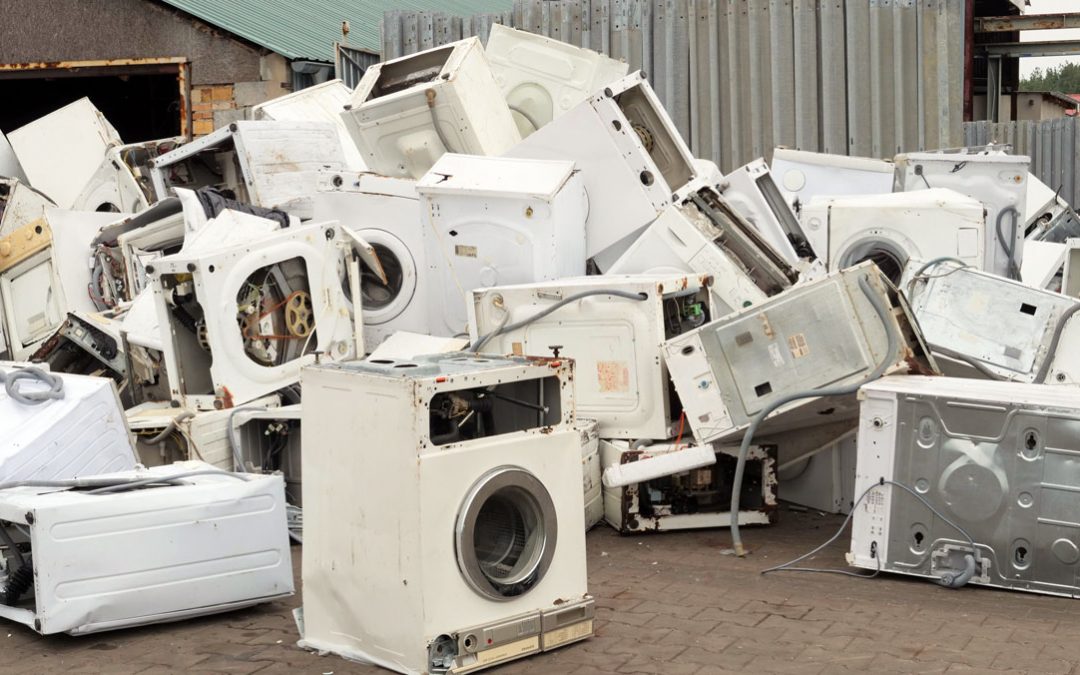As the convenience economy continues to expand into every vertical imaginable, one company is taking on one of the most dismal household chores: laundry.
Sudshare founder and CEO Mort Fertel said the idea came from his wife and the family’s chief launderer.
“My wife and I have five kids; she’s buried in laundry. And she says, ‘This is crazy, I can tap an app and go to the airport but I’m still doing laundry like my grandmother,” said Fertel. “And she’s right, tech has made it easier and faster but the chore that takes longer than any other hasn’t been touched in 70 years.”
His son, Nachshon Fertel, ran with the idea and at 17 years old, created a pair of apps to create an “Uber for laundry,” one app for consumers and one app for gig workers willing to do laundry, a.k.a Sudsters. His triplet brother and sister took on operations and accounting roles respectively and the family gig-work business launched in 2018.
Customers pay $1 per pound of laundry with a 20-pound limit, plus any tip they choose. Sudsters get 75 cents per pound. Fertel said jobs ranged from a 30- to 40-pound weekly laundry jobs to a whopping 400-pound load of laundry.
The family spent 2019 and 2020 squashing bugs, building out standard operating procedures to support the business, and rolled out to five cities by the end of 2020. At that point, Fertel said it was ready to scale.
“We had done all the work to create the infrastructure to crate real growth. Then in 2021 we got complete liftoff, we basically expanded to 400 cities,” said Fertel.
He said there was advertising, but the rollout was largely viral with Sudsters and customers hyping the service as it expanded to new markets. The ongoing pandemic was fuel for growth, as well.
“COVID is a terrible thing, but it did help Sudshare. It put people in touch with their mortality and made people ask, ‘What do I want to do with my time here on Earth?’ When people ask that questions in a deep meaningful way, nobody says I want to spend time doing laundry,” said Fertel.
It helped the other side of the marketplace, too. With more people looking to work from home, Sudshare became an option for folks who didn’t have white-collar jobs.
“Those people wouldn’t otherwise be able to work from home. Sudshare is the first and only—that I know of—manual-labor job that you can do from home. That would have been huge without COVID, but all the more so with COVID.”
As the company grew, he saw some use cases emerge. First, there was the weekly laundry folks who outsourced all their laundry, there were travelers who had their clothes washed instead of packing a giant suitcase. On the fulfillment side, he saw families coming together to chat over a side hustle and mini businesses pop up with intensely efficient Sudsters turning laundry into their full-time jobs. He said most Sudsters make between $15 and $35, a wide range that largely depends how efficient they want to do it.
Now, Fertel is focused on scaling up further and brining in some non-Fertel talent.
“In order for us to accomplish what we’re trying to accomplish, we need to graduate from this family-business phase and become more like the tech world. I hesitate when I say that, God forbid we ever lose the taste or the feeling. We think it’s one of the reasons we succeeded, that whole sense of community in our Sudster network. We’re spending a lot of time and money maintaining that at scale,” said Fertel.
The big goal for Fertel is giving customers their time back, and maybe a little extra storage, too.
“People think we’re a laundry service company, then at a second glance they see that it’s a tech company. But from our perspective, we’re selling the most precious thing on Earth: time,” said Fertel. “That’s really our mission, to save America from this time-sucking chore that we’ve been a slave to for so long. I’m not interested in getting a slice of the laundry-service market, I want to make your washer and dryer obsolete. I imagine a world where people convert their laundry room into storage or something else.”


